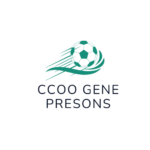Registered Dietitian Sports Nutrition
- Specialized Expertise: Registered dietitian sports nutritionists (RDNs) provide tailored nutritional strategies to meet the unique dietary needs of athletes, enhancing performance and recovery.
- Personalized Nutrition Plans: RDNs assess individual training intensities, body composition, and performance goals to create custom meal plans focused on optimal macronutrient distribution.
- Hydration Strategies: Proper fluid intake is crucial; RDNs educate athletes on hydration requirements to prevent dehydration and enhance endurance during training and competitions.
- Recovery Nutrition: Emphasis on post-exercise nutrition helps athletes replenish energy and repair muscles, with specific recommendations for timing and composition of recovery meals.
- Long-term Health: RDNs address health and wellness by promoting balanced diets, preventing disordered eating, and providing guidance on safe dietary supplements for sustained athlete health.
 In the competitive world of sports, athletes constantly seek an edge to enhance their performance. This quest often leads them to the expertise of registered dietitian nutritionists (RDNs) who specialize in sports nutrition. These professionals understand the unique dietary needs of athletes and provide tailored strategies to fuel their bodies for optimal performance.
In the competitive world of sports, athletes constantly seek an edge to enhance their performance. This quest often leads them to the expertise of registered dietitian nutritionists (RDNs) who specialize in sports nutrition. These professionals understand the unique dietary needs of athletes and provide tailored strategies to fuel their bodies for optimal performance.
With a blend of science and practical advice, registered dietitian sports nutritionists help athletes navigate the complexities of nutrition. They focus on everything from meal planning to hydration strategies, ensuring athletes get the right nutrients at the right times. By collaborating with athletes, RDNs empower them to reach their goals and maintain peak physical condition.
What Is Registered Dietitian Sports Nutrition?
Registered dietitian sports nutrition involves the application of nutrition science specifically tailored to meet the dietary needs of athletes. This specialized field focuses on optimizing athletic performance through personalized nutrition strategies.
RDNs assess individual athletes’ energy requirements, analyzing factors like training intensity, duration, and body composition. Based on this assessment, RDNs create customized meal plans that address macronutrient and micronutrient needs.
Hydration strategies also play a critical role in sports nutrition. RDNs educate athletes on proper fluid intake before, during, and after exercise. They promote hydration techniques that prevent dehydration and enhance recovery.
In addition to meal planning and hydration, registered dietitian sports nutrition encompasses sports supplements. RDNs evaluate the use of dietary supplements, ensuring they align with athletes’ overall nutrition goals. They emphasize natural food sources and educate on the potential benefits and risks associated with supplementation.
Overall, registered dietitian sports nutrition combines scientific knowledge with practical application, providing athletes with the tools needed to perform at their best.
Importance of Registered Dietitian Sports Nutrition
Registered dietitian sports nutrition plays a critical role in athletic development by providing evidence-based nutritional guidance tailored specifically for athletes. This specialization enhances performance and supports overall health.
Enhancing Athletic Performance
Enhancing athletic performance requires a deep understanding of sport-specific nutritional demands. Registered dietitian nutritionists (RDNs) analyze training schedules, individual goals, and body composition to create precise dietary strategies. They focus on macronutrient distribution—carbohydrates, proteins, and fats—to fuel workouts and optimize recovery.
RDNs also assess nutrient timing, recommending when to consume specific foods to maximize energy levels and muscle recovery. For example, athletes may benefit from carbohydrate intake before and after exercises to replenish glycogen stores. Additionally, hydration strategies guide athletes on optimal fluid intake, preventing dehydration and enhancing endurance during high-intensity training or competition.
Supporting Health and Wellness
Supporting health and wellness is an integral aspect of registered dietitian sports nutrition. RDNs incorporate scientific knowledge to emphasize the importance of micronutrients and their roles in maintaining overall health. They educate athletes on balanced diets that promote immunity, reduce injury risk, and support mental well-being.
RDNs also address long-term health implications of nutrition choices, emphasizing the prevention of disordered eating and promoting sustainable habits. They guide athletes on safe supplement use, ensuring any added products support current dietary practices without compromising health. Through individualized assessments and ongoing support, RDNs empower athletes to achieve not only peak performance but also lifelong well-being.
Services Offered by Registered Dietitian Sports Nutritionists
Registered dietitian sports nutritionists offer a variety of services tailored to athletes’ dietary needs. These professionals ensure that nutritional strategies enhance performance, recovery, and overall health.
Personalized Nutrition Plans
Personalized nutrition plans address each athlete’s unique requirements. RDNs assess individual factors such as training intensity, body composition, and specific performance goals. Based on this assessment, they develop customized meal plans that optimize macronutrient distribution, focusing on carbohydrates, proteins, and fats to fuel training and support recovery. This personalized approach ensures that athletes receive the right nutrients at the right times, aligning with their training schedules and competitions.
Hydration Strategies
Hydration strategies are crucial for athletic performance and recovery. RDNs educate athletes on proper fluid intake tailored to their training demands and environmental conditions. They provide guidelines for hydration before, during, and after exercise, emphasizing the importance of electrolyte balance and its role in preventing dehydration. RDNs also recommend fluid types, such as water, sports drinks, and natural beverages, ensuring athletes understand how to maintain optimal hydration levels.
Recovery Nutrition
Recovery nutrition focuses on replenishing energy stores and repairing muscles after intense training sessions or competitions. RDNs provide recommendations for post-exercise meals and snacks that facilitate recovery, emphasizing the importance of protein and carbohydrates. They educate athletes about nutrient timing, suggesting optimal windows for nutrient intake to maximize recovery and performance gains. This targeted approach helps athletes bounce back faster, reducing fatigue and injury risk.
How to Choose a Registered Dietitian Sports Nutritionist
Selecting a registered dietitian sports nutritionist involves assessing their qualifications, experience, and approach to sports nutrition. Proper evaluation ensures the chosen professional aligns with an athlete’s specific needs and goals.
Credentials and Certifications
Verify the dietitian’s credentials, ensuring they hold the title of Registered Dietitian Nutritionist (RDN). RDNs complete extensive education, including a bachelor’s degree in nutrition or a related field, an accredited supervised practice program, and a national examination. Additionally, look for certifications in sports nutrition from recognized organizations, such as the Academy of Nutrition and Dietetics or the International Society of Sports Nutrition. These credentials indicate a solid foundation in both nutrition science and practical application specific to athletic performance.
Experience with Specific Sports
 Confirm that the dietitian has experience working with athletes in the relevant sport. Different sports have unique demands that affect nutritional strategies, such as endurance training versus strength training. Inquire about their background, including working with teams, individual athletes, and their understanding of sport-specific nutritional needs. A dietitian familiar with the demands of a sport can provide tailored recommendations for energy intake, macronutrient distribution, and recovery strategies, leading to optimized performance and well-being.
Confirm that the dietitian has experience working with athletes in the relevant sport. Different sports have unique demands that affect nutritional strategies, such as endurance training versus strength training. Inquire about their background, including working with teams, individual athletes, and their understanding of sport-specific nutritional needs. A dietitian familiar with the demands of a sport can provide tailored recommendations for energy intake, macronutrient distribution, and recovery strategies, leading to optimized performance and well-being.
A Crucial Role in an Athlete’s Journey Toward Peak Performance
Registered dietitian sports nutritionists play a crucial role in an athlete’s journey toward peak performance. Their expertise in tailoring nutrition plans ensures athletes meet their unique dietary needs while enhancing recovery and overall health. By focusing on evidence-based strategies and personalized guidance, RDNs empower athletes to make informed dietary choices that align with their training goals.
Choosing the right registered dietitian can significantly impact an athlete’s performance. With the right support, athletes can optimize their nutrition to fuel their bodies, recover effectively, and maintain long-term health. This partnership not only enhances athletic performance but also fosters a sustainable approach to nutrition that benefits athletes throughout their careers.

